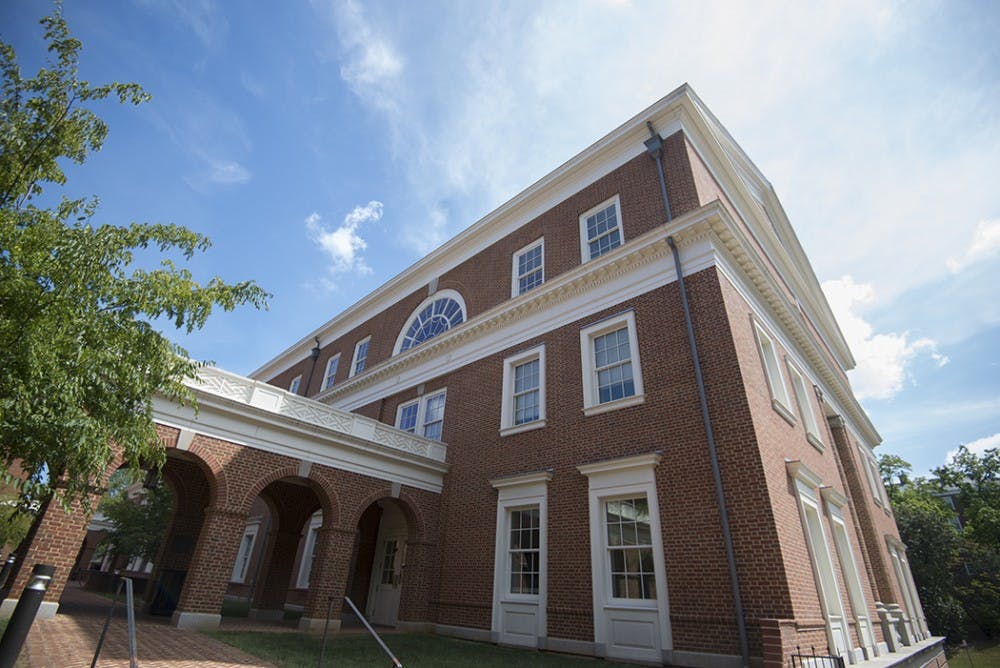Around Grounds, regardless of the semester or year, students experience stress due to midterms, papers and even social relationships. When it comes to seeking counseling for mental health, there are a variety of options available locally. Students should educate themselves on these resources and choose which center they ultimately wish to go to based on what they intend to gain from the experience.
CAPS
To get started with CAPS, students can call to make an appointment. After calling, students are scheduled for a brief phone call screening within one to two business days. During this phone call, a CAPS clinician will have a 15-20 minute conversation with a student in which they generally inquire about their needs and current state of well-being.
Based on this discussion, a clinician provides students with a recommendation that could include coming to CAPS for a same-day emergency appointment, an urgent intake within one to three days, the next available standard intake or a referral to other offices on Grounds, a Charlottesville Community provider or a referral to online help options.
However, if a student cannot wait for a screening appointment because they feel they will hurt someone else or themselves, they can ask to speak with the emergency consult clinician.
CAPS did not return request for comment.
The Women’s Center
The Women’s Center is another resource that students can seek for their mental health needs. Despite the name, the Women’s Center offers counseling for all people regardless of their gender as well as for couples.
After students call the counseling office, a clinician gathers basic information from students and asks them to schedule an appointment. The first appointment, called an “intake appointment,” is scheduled for one hour in which students can talk to a counselor about their needs and goals for counseling. Based on this information, counselors help students determine the best kind of counseling for their needs, such as individual or group counseling, and help them set up a follow-up appointment. In cases where counselors believe a student’s needs would be better served elsewhere, they help students make necessary arrangements with another agency or service provider.
The Women’s Center did not return request for comment.
HELPLine
HELPLine is another resource for students who want help. HELPLine program director Kennedy Couch said HELPLine is an anonymous, confidential, non-judgmental and non-directive telephone service that serves students on Grounds and in the Charlottesville community.
The phone service is available 24 hours a day, seven days a week with the exception of student breaks. The service allows students to discuss issues with who Couch characterized as a “non-judgemental listener.”
Frequently, students call into HELPLine to discuss assault and abuse, empathy, mental health and stress and suicide ideation.
“HELPLine’s mission has always been a short term service since we are not trained professionals,” Couch said. “Ultimately, the goal is that students go somewhere more professional.”
HELPLine volunteers go through a short training period to understand the appearances of various mental health disorders. Additionally, HELPLine works with CAPS to generate training manuals to ensure their volunteers act in a professional manner.
However, HELPLine does not diagnose anyone, and conversations can be as long as possible, as there is no time limit to the length of conversations.
Mary Ainsworth Psychological Training Clinic
The Mary Ainsworth Psychological Training Clinic is sponsored by the Psychology department’s Clinical Training Program located in Gilmer Hall.
One important fact that students should note is the the clinic is primarily a training clinic for the Psychology department's clinical graduate students. All sessions, whether therapy or testings sessions, are videotaped so graduate students’ supervisors can watch the tape later with the graduate students, said Patricia Llewellyn, Director of the Mary Ainsworth Training Clinic, in an email to The Cavalier Daily.
However, tapes are deleted once the supervisor has watched them with the graduate students, Llewellyn said.
In addition, since they are a training clinic for graduate students who are unavailable during the summer, most of their clients are seen during the academic year. The clinic also has limited availability, since graduate students provide most of their services, Llewellyn said.
"The best times for people to call our clinic for therapy is late summer to early January," Llewellyn said. "After January, we are often full and unable to accommodate any further therapy requests until the next fall semester.
The department offers both short- and long-term counseling and therapy, as well as assessment services for a wide array of academic and psychological issues. Like CAPS, a phone intake screening is the first step within this clinic. However, they are unable to take walk-ins and emergencies. While the clinic is free currently, it has a two-year wait.







